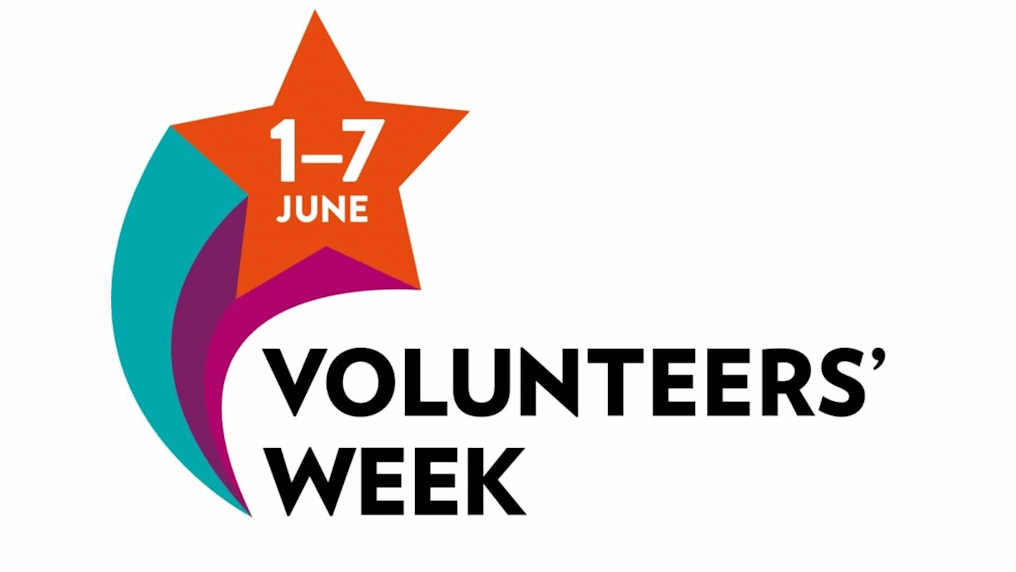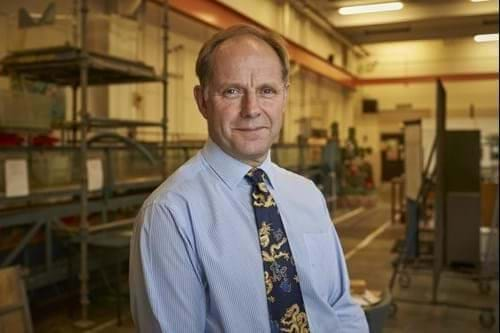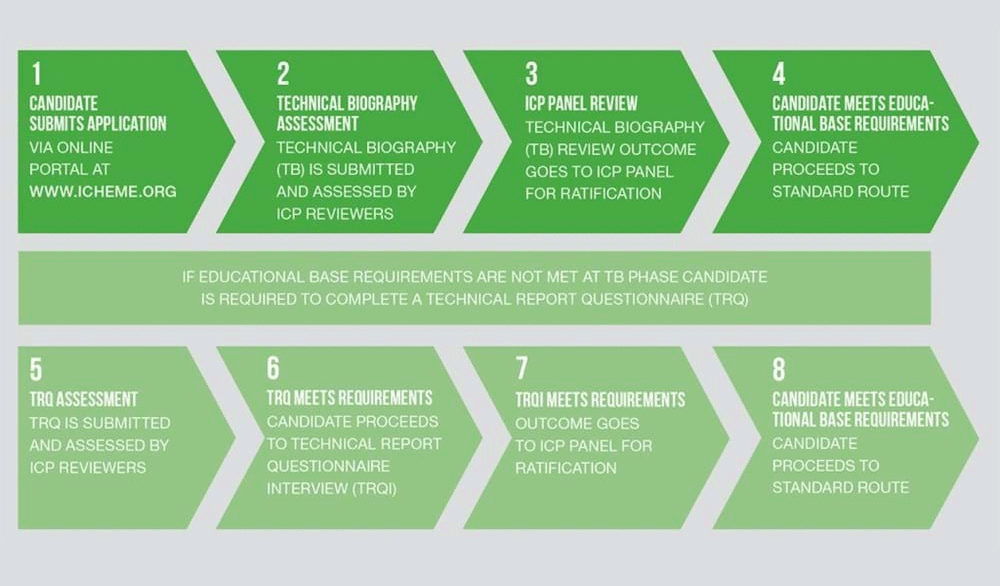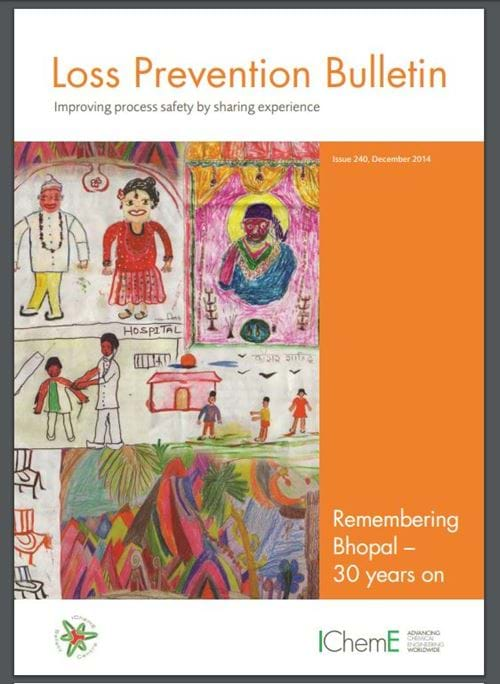Thanking our volunteers for keeping our wheels turning during the coronavirus – UK Volunteers Week 2020

1st June 2020
Our dedicated member volunteers around the world are the life and soul of the Institution. Without their efforts we couldn’t fulfil our duties as a qualifying body or a learned society. Or truly be an organisation that is led by members, supports members and serves society.
Their efforts and activities are appreciated by the Institution all year round. And, as part of IChemE’s Strategy 2024, we are working to further improve the volunteer experience to ensure the membership remains a vibrant and thriving community. This is one of President Stephen Richardson’s top priorities, and that’s why at the end of 2019 he initiated a two-year programme to improve support for and better recognise volunteers. We are currently reviewing processes and documentation and planning how we can better align and improve them across the organisation, whilst adopting best practice. We’ll provide further updates on this in the coming months as the programme of work progresses.
As we entered 2020, no-one could have predicted the effect coronavirus would have on individuals, organisations and our health services across the world. At IChemE, we’ve been adapting our procedures so we can still maintain the same standards of services to our members, and our fellow professionals across academia and industry. A huge thank you to all of our volunteers across the world who are leading this effort.
To mark Volunteers Week in the UK (1-7 June), we’re sharing stories from just a couple of our many UK volunteers to highlight their great contributions to help IChemE adapt in this pandemic. They explain why now it’s more important than ever to maintain safe and quality practices in chemical engineering to support the wider community.

Name: Carl Schaschke
Job Title and organisation: Dean of Computing, Engineering and Physical Sciences, University of the West of Scotland
IChemE role: Education and Accreditation Forum, Individual Case Procedure
Bio: After first working for a time in the nuclear reprocessing industry after graduating in chemical engineering, I completed a PhD in chemical engineering at the University of Strathclyde. I’ve spent the rest of my career working as an academic. I’ve now worked for four Scottish universities and currently Dean of School at the University of the West of Scotland.
You’re a university assessor and also part of the team developing the Individual Case Procedure (a new process being piloted under IChemE’s Programme SMART to introduce flexible pathways to membership for those whose have degrees that haven’t been accredited by IChemE). Tell us briefly about what each of those roles entails and how they cross over?
Accreditation is all about the quality assurance of chemical engineering education to international benchmarking standards. As an assessor, I form part of a team that carries out the audit side of things which involves a fact-finding visit to a university. The golden rule is to ask searching questions, but never to offer personal opinions. Since every course is different and unique, the focus is always on finding out what the learning outcomes are and how they are met. It’s a lot of work, but being an assessor has the benefit of seeing in minute detail how another university works. To do accreditation assessment well requires training. I now provide some of the training for others, but I also still undertake my own regular training.
Individual Case Procedure (ICP) is about considering applications for IChemE membership from those who have non-accredited qualifications. There are many practising chemical engineers with a lot of very good experience but in the past have found the process to membership too daunting to apply. One of the projects in Programme SMART involves a new flexible and easier-to-follow process to membership. It reviews and assesses knowledge and understanding of an applicant. Importantly, it’s designed to ensure consistent standards for IChemE membership by assessing individuals against exactly the same standards of achievement as for those applying from accredited degree programmes. I’ve been involved in developing the new process which is now at a stage of being ‘road-tested’ with some volunteer applicants to check that it fully works.

How has your career and professional experience enabled you to help contribute to the qualifications activities of IChemE?
I had a very good mentor in the late Professor Colin Grant when I was at the University of Strathclyde. He was supportive of my early interests in the profession and IChemE. I first became actively involved in the Scottish Members Group as well as the Education Special Interest Group working alongside many great people all committed to advancing chemical engineering practice and education. I later joined the pool of assessors for accreditation. I now put that valuable experience to use through ICP and the Education and Accreditation Forum which, amongst other things, has the responsibility for awarding accreditation of degree programmes.
In response to the coronavirus, changes have been made to the way university degree programmes are being delivered, as well as the way IChemE accreditation visits are being conducted. Can you tell us how the volunteers at IChemE are helping to support members, universities and students during this time?
I was recently involved in an overseas accreditation just as COVID-19 was turning into a global pandemic. Rather than abandon the accreditation visit we made some swift rearrangements to the plans to continue. It therefore became IChemE’s first semi-virtual online accreditation. The success was helped by good cooperation from the visiting institution to make the necessary adjustments and, as always, the background support from IChemE employees. We modified the schedule and still met with all the staff and students, but through Skype. The lessons learnt have helped inform IChemE how to conduct future accreditations online.
Why do you volunteer with IChemE and what do you find rewarding about your volunteer roles?
I really enjoy working with people who come from many different and diverse backgrounds, professions, industries and universities. My work with IChemE has now taken me all over the world such as New Zealand, South Africa, Sri Lanka, Trinidad, and the Middle East. Wherever I’ve been, it’s always been a privilege to meet students who are the next generation of chemical engineers. As a Fellow of IChemE, I believe it is my responsibility to support the development of others in the same way that people have helped me to where I am today.

Name: Fiona Macleod
Job Title and organisation: Managing Director, Billions Europe
IChemE role: Chair of the Loss Prevention Bulletin Editorial Panel
Bio: After 30 years in manufacturing, working in factories all over the world, I now run a technical sales organisation for an international company that manufactures titanium dioxide.
Tell us about the Loss Prevention Bulletin (LPB) - what are your objectives, aims and how does the editorial panel decide what to feature to support knowledge-sharing for chemical, biochemical and process engineers?
The Loss Prevention Bulletin tells the stories of things that went wrong to try and prevent them happening again. It is not an academic publication; its aim is to reach as broad range of readers as possible, sharing real-life experiences so that we can all learn. We believe in the power of story. As Trevor Kletz said: “Case histories grab our attention much more effectively than advice.”

We’re a slightly unusual panel, in that we expect members to write or source articles - in fact it is a condition of panel membership - as well as reviewing those of others. We are always looking for new articles, especially practical case studies.
Articles are posted on Basecamp (a web-based portal) and other panel members comment - often quite robustly! Factual accuracy is key in a peer-reviewed journal, but engagement is also vital. It’s not enough to be correct if nobody reads what you write!
We meet as a panel at least four times a year, in person where possible, by teleconference where not. Our main discussion centres on planning future editions and discussing papers which have split the panel. As Chair, I try to gain consensus, but it’s not always possible, in which case I decide. There are additional meetings for special topics, such as author guidelines or judging the SIESO medal. We’re extremely fortunate to have a member of IChemE staff to help us; Editor Tracey Donaldson is key to the success of LPB.
Tell us about your proudest achievement as part of your role on the editorial panel and/or the most interesting part of the voluntary role?
There are many things I am proud of: the special free anniversary issue on Bhopal, India; the use of graphic art to tell an old story (Flixborough, UK) through a new lense; and the roll out of the SIESO medal to encourage students to find ways to communicate process safety stories in novel ways.
As engineers, scientists, health professionals and governments across the world look to scale up tests and medicines to combat the coronavirus, why do you think process safety, and the skills that process safety professionals have, is particularly important in the global response?
Process safety is all about balancing risk and benefit. There is no such thing as absolute safety (although there is inherent safety). The tragedy in Visakhapatnam, India on 7 May 2020 is a reminder of the need to understand and control hazards, even when a factory is shut down.
Why do you volunteer with IChemE and what do you gain from volunteering?
While I was working in India, I visited the site of the 1984 Bhopal accident and was horrified to discover that it lay unremedied 30 years later.
I wrote my first LPB paper to draw attention to the fact that the residual contamination continues to affect the local population. My paper was accepted and I was invited to join the panel. I’ve benefited enormously from the wisdom and experience of fellow professionals, learned a lot and gained valuable new colleagues and friends.